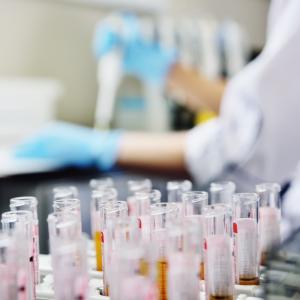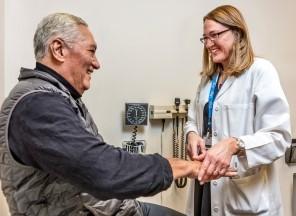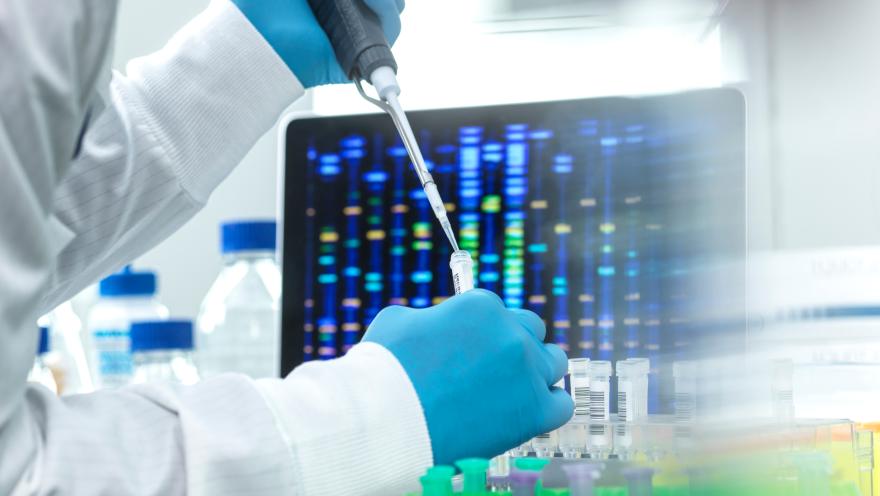With the emergence of gene-targeted therapies, knowing whether your ALS has an underlying genetic cause is becoming more important. Research has shown that about two-thirds of people with familial ALS and about 10% of people with sporadic ALS (no family history) have a mutation (or change) in at least one of the more than 40 genes that have been linked to the disease.
Genes and Mutations
Genes are stretches of DNA that contain instructions for making proteins. Proteins are essential components of cells that control reactions and provide structure. A single neuron alone contains about 50 billion proteins that support the cell’s essential functions.
When a mutation occurs, it changes the letters – also known as a genetic sequence – that spell out the instructions sent to a cell’s protein-making machinery. These faulty instructions can create faulty proteins. They also alter an intermediary molecule, known as messenger RNA (mRNA), that helps translate genes into proteins. All these changes can be harmful to the cell and may lead to disease.

With advances in technology, it has become much easier and cheaper to identify genetic mutations by testing blood and/or saliva samples. When looking for ALS-associated genes, genetic tests act like a spellchecker, combing through specific genetic sequences to find any “typos” that have been linked to the disease.
Potential Benefits and Drawbacks of Testing
While previously reserved for those with a strong family history of ALS, genetic testing is now an option for anyone who has received a diagnosis, according to Ellie Harrington, a certified genetic counselor at the Eleanor and Lou Gehrig ALS Center at Columbia University Medical Center.

“Anyone can get testing,” Harrington said during an episode of the Connecting ALS podcast. “There's benefits and drawbacks, and it's a very individual choice whether someone wants to get testing.
And that's the conversation with your neurologist, with your genetic counselor, is to talk about those details and figure out if that's something that you want to do.”
Genetic testing can affect the disease journey of people living with ALS. A number of gene-targeted therapies are in development, and finding out you have a mutation in a gene like SOD1, FUS or C9orf72 could make you eligible to participate in a clinical trial.
Additionally, in just a few weeks, the U.S. Food and Drug Administration will conduct its first-ever review of an ALS gene-targeted therapy and will decide whether to approve tofersen as a treatment for SOD1-ALS, the second most common form of familial ALS. Because this drug specifically targets proteins produced from a mutated SOD1 gene, genetic testing will be essential to determine who could potentially benefit from tofersen treatment if it is approved.
As much as genetic testing can affect the person living with ALS, it can also have implications for loved ones, according to Harrington. Genetic testing can create strain in marriages and among families, especially since the results can reveal information about family members’ chances of getting ALS and may affect family planning.

This is where genetic counseling can help. A genetic counselor can work with you to evaluate the pros and cons of genetic testing, taking your concerns and values into account, so you can make the best decision for you and your situation.
“A lot of people don't know what genetic testing involves – what it can mean for a person or their family members – and that's what an appointment or a conversation with a genetic counselor is about,” Harrington explained. “Having those conversations is not locking you into testing. It's just making you better informed.”
More information about the benefits and risks of genetic testing for people living with ALS can be found HERE.
To continue to follow stories about people living with ALS in the community and learn more about the disease, subscribe to receive our weekly blogs in your inbox HERE or follow us at als.org/blog.
If you would like to receive monthly ALS research updates, SUBSCRIBE to our newsletter, Research Matters.


Join the conversation. Please comment below.